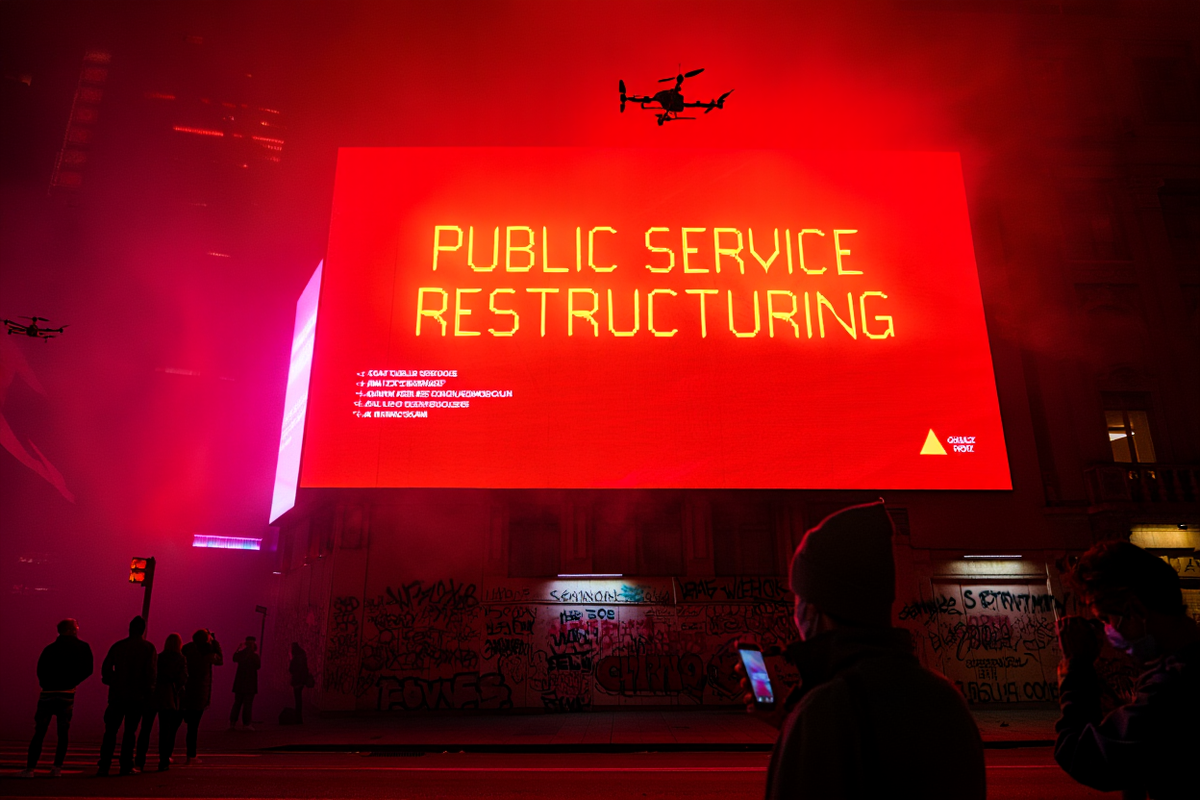The Great Unbundling

How the social contract is unraveling —and what comes next.
Prologue: A Brief History of the Bundle
For most of history, survival came unbundled.
In tribal life, security came from kin. Food from the land. Justice from tradition. There were no systems—only people.
As tribes became chiefdoms, a crude bundle emerged. The leader protected. The priests explained. A rough offering—but enough to hold things together.
Then came kingdoms. Power scaled. The king offered roads, laws, and defense. In return, subjects pledged loyalty. Religion justified the arrangement. Feudalism enforced it.
Empires added bureaucracy. Taxes were systematized. Soldiers professionalized. Post routes and census records were born. Society became legible. Services consolidated.
But the modern nation-state—emerging in the 17th century and maturing in the 20th—offered something no prior system had:
a complete bundle.
The Rise and Peak of the Nation-State
In the postwar boom, the bundle came of age.
For the first time in history, you could be born into a single system that offered:
- Free education
- Universal healthcare
- Pensions and social security
- Public infrastructure
- Police, courts, and ID
- Currency, culture, and a national myth
You didn’t need to shop for providers.
The state was the provider.
This wasn’t a utopia. But for the average citizen in much of the West, it was coherent. Stable. Predictable.
The 20th-century citizen was the most bundled human in history.
The bundle scaled because:
- Centralization was efficient
- Monopoly was accepted
- Participation was automatic
- There was no real competition
And then the internet arrived.
Why the Bundle Is Breaking
The world changed. The state didn’t.
Coordination no longer required governments.
Platforms could scale faster than ministries.
Networks could out-organize departments.
Crypto could out-govern banks.
The bundle fell behind.
The state didn’t collapse. It simply became… uncompetitive.
- Slow to adapt
- Costly to run
- Outperformed by software
- Distrusted by default
Today, most governments haven’t failed maliciously.
They’ve simply stopped delivering.
The bundle no longer wins on merit.
It survives on habit.
And habit is breaking.
Act I: The Age of the Bundle
For a century, citizenship came bundled.
Pay your taxes. Obey the rules. In return, you got everything:
- Public education
- Basic healthcare
- Police, courts, and pensions
- Roads, IDs, and national belonging
It was the nation-state bargain: loyalty in exchange for stability.
It worked—until it didn’t.
Act II: A System in Slow Retreat
States aren’t collapsing.
They’re just doing less.
No announcement. No protest. Just slow decay.
- Hospitals overwhelmed
- Schools outdated
- Infrastructure crumbling
- Courts backlogged
- Trust evaporating
Meanwhile, private alternatives fill the gaps:
- Online schools
- Crypto finance
- Mesh networks
- Private security
- Passport-by-subscription
This isn’t rebellion. It’s quiet exit.
The state hasn’t been overthrown.
It’s being outperformed.
Act III: From Citizenship to Subscriptions
People no longer belong to nations.
They subscribe to systems.
A single person might:
- Learn from YouTube
- Earn in crypto
- Bank in Singapore
- Get healthcare overseas
- Use Estonian e-residency for work
- Live in Bali—and belong nowhere
They don’t “belong.”
They assemble.
Act IV: What’s Unbundling Right Now
Here’s what’s unbundling—right now:
The bundle isn’t evolving.
It’s evaporating.
Act V: The Rebundling Has Already Started
People still need structure.
They just don’t want it from the state.
So they’re rebuilding society from the bottom up:
- Culture: through online tribes
- Identity: through cryptographic wallets
- Justice: through smart contracts
- Belonging: through aligned values
- Power: through tokens, governance, and forks
This isn’t chaos.
It’s composability.
We’re not destroying society.
We’re redesigning it.
Act VI: What Comes Next
We’re entering the age of fragmented sovereignty:
- Systems are modular
- Authority is distributed
- Affiliation is opt-in
- Citizenship is earned, not inherited
It won’t be smooth.
It won’t be equal.
But it’s already happening.
And in the vacuum left by the nation-state, networks rise.
Final Thought
The Great Unbundling isn’t the end of civilization.
It’s the end of centralized trust.
The bundle is dead.
The stack is next.
You don’t need to fix the old system.
You can reassemble your own.
A sovereign future won’t be handed to you.
It must be composed—layer by layer, fork by fork.




